Flash Sales – The Ultimate Guide to Flash Sale Strategies
Flash sales are a great way to draw attention to your brand and grow sales. We’ll show you five different approaches you can take to pull one off.
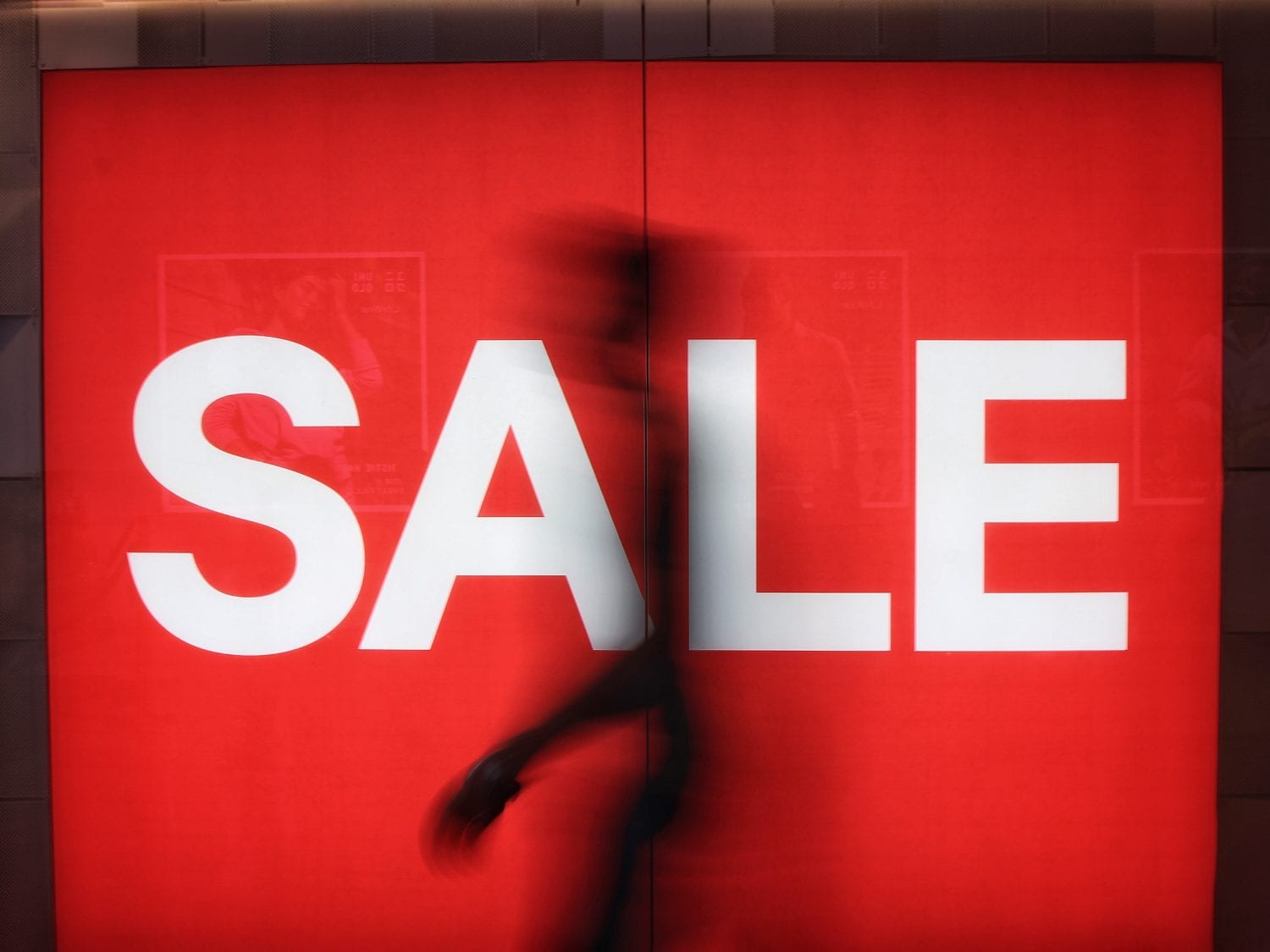
Flash sales are a great way to draw attention to your brand and grow sales. We’ll show you five different approaches you can take to pull one off.

Flash sale, even just the name sounds intriguing enough to draw you in. But it’s so much more than a catchy sales slogan.
These sales are the ultimate tactic for creating urgency and driving purchases during a specific time frame.
They can be an asset for retailers looking to increase sales during slow periods as well as those who are looking to simply drum up enthusiasm and drive store traffic.
What we’re getting at is, flash sales are more than just an opportunity to unload old or overstocked merchandise. They’re an opportunity to demonstrate value to your customers and create buzz about your brand.
We’ll show you how by breaking down exactly what a flash sale is as well as give you some examples from successful retailers.
A flash sale is a type of promotion that is active for a short time, typically featuring a specific or limited quantity of a product or service.
The time-based element is what separates a flash sale from a traditional sale, which offers discounts or promotions over a longer period. While a flash sale is most often associated with retailers, any business that sells a product or offers a service can use a flash sale as part of its marketing strategy.
The lack of abundance and presence of a ticking clock in a flash sale creates a sense of urgency that may result in a quick purchase from customers.
In addition to understanding the definition, it’s also important to get a clear picture of what makes a flash sale successful. Here are our top five tips:
Because flash sales aren’t a new tactic, there’s a good amount of research pointing to some of the benefits these kinds of sales can have.
For example:
Now, let’s give these statistics a leg to stand on with some real-world examples of flash sales in action. But more specifically, examples that anyone can replicate with their own business model.
While there are some retailers, like Zulily, that base their entire sales strategy on limited quantities, that’s not the only approach.
Here are some examples of retailers and e-commerce sites that have run unique and successful flash sales with their audience.
The UK clothing retailer HYPE takes a unique approach to flash sales by offering discount tiers based on how quickly you shop. The first 25 people receive 50% off, the next 50 people 35% off, and so on.
This kind of early bird reward system takes the feeling of urgency and elevates it even more.
If you’re looking to invite the kind of impulse buying successfully employed by big retailers like Amazon and Wayfair, including timed tiers is an excellent way to go!
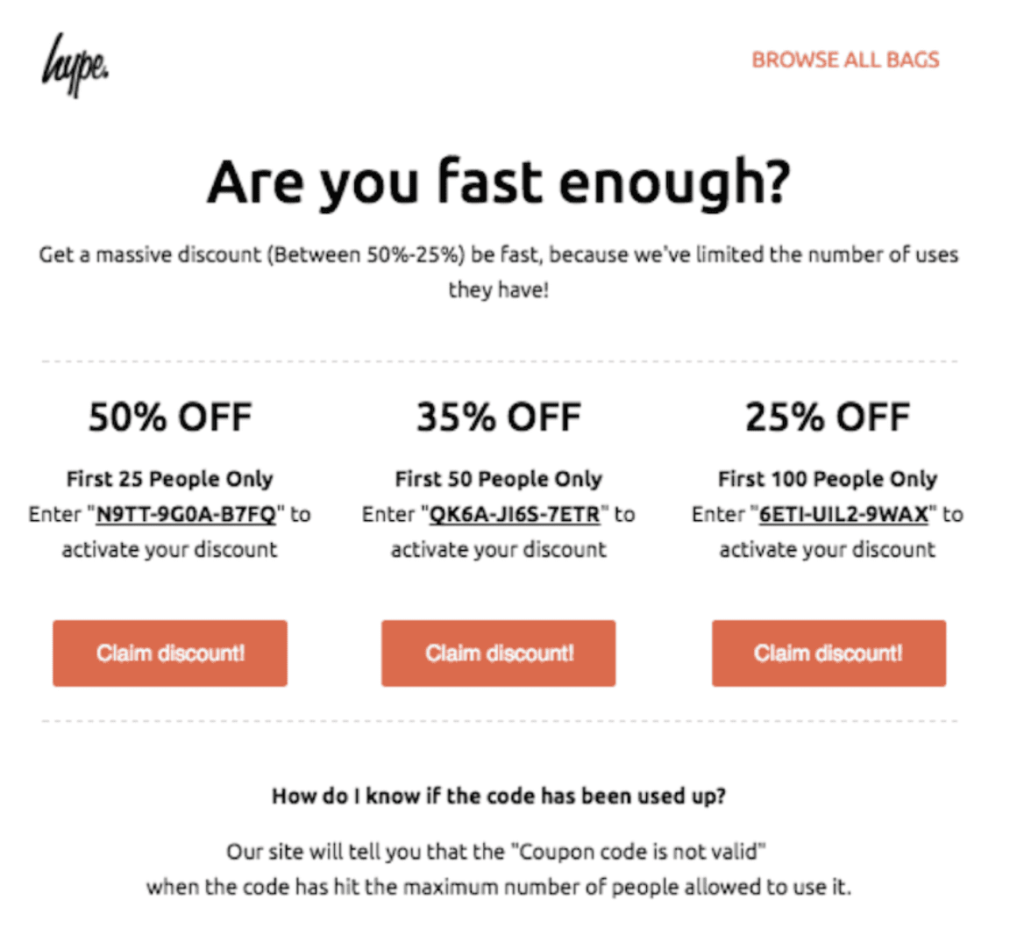
Airline tickets are notoriously expensive, so a great way to capture attention is by boasting a too-good-to-be-true rate. Offering flight tickets for prices as low as $15 is sure to get anyone’s attention.
Flash sales with deals like this are successful because of their “deal appeal.”
Even though it may be difficult to actually land the $15 ticket, it’s such a steep discount it’s worth sharing your email or phone number with the company simply for the chance at scoring the deal.
As the retailer, you’re able to collect contact information that can be valuable for future text or email marketing campaigns.
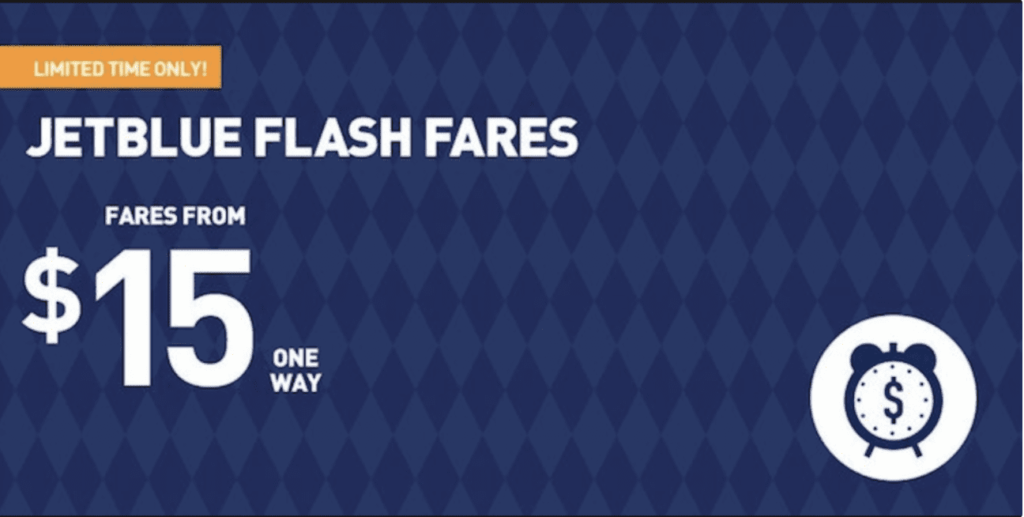
Taking advantage of a particular time slot for your sale can create intrigue across various audiences.
For example, the brand Current decided to take advantage of most working professionals’ quick time off by launching the “lunch hour flash sale” below.
This approach not only takes advantage of what you know about your audience, but it also gives you a unique angle to pitch when advertising the event.
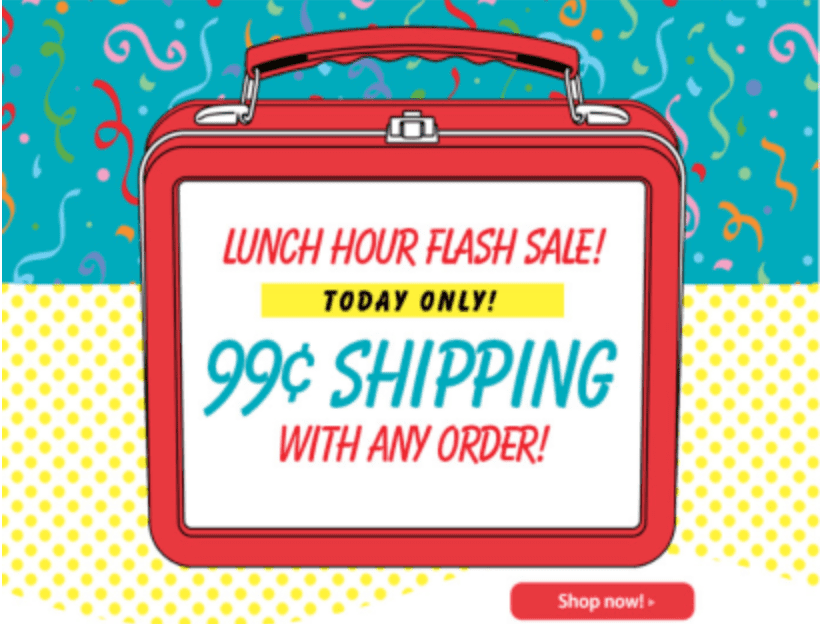
There’s a reason why casinos make good money, people love the thrill of gambling!
For retailers who have a fairly wide variety of price points, you may have the opportunity to seize consumer’s curiosity with a mystery flash sale like the one below.
Will you be the big winner landing $200 off, or just score free shipping? You’ll have to play to find out.
Just like the JetBlue example above, this kind of sale is also a great opportunity to collect online shopper’s contact information for future promotions.
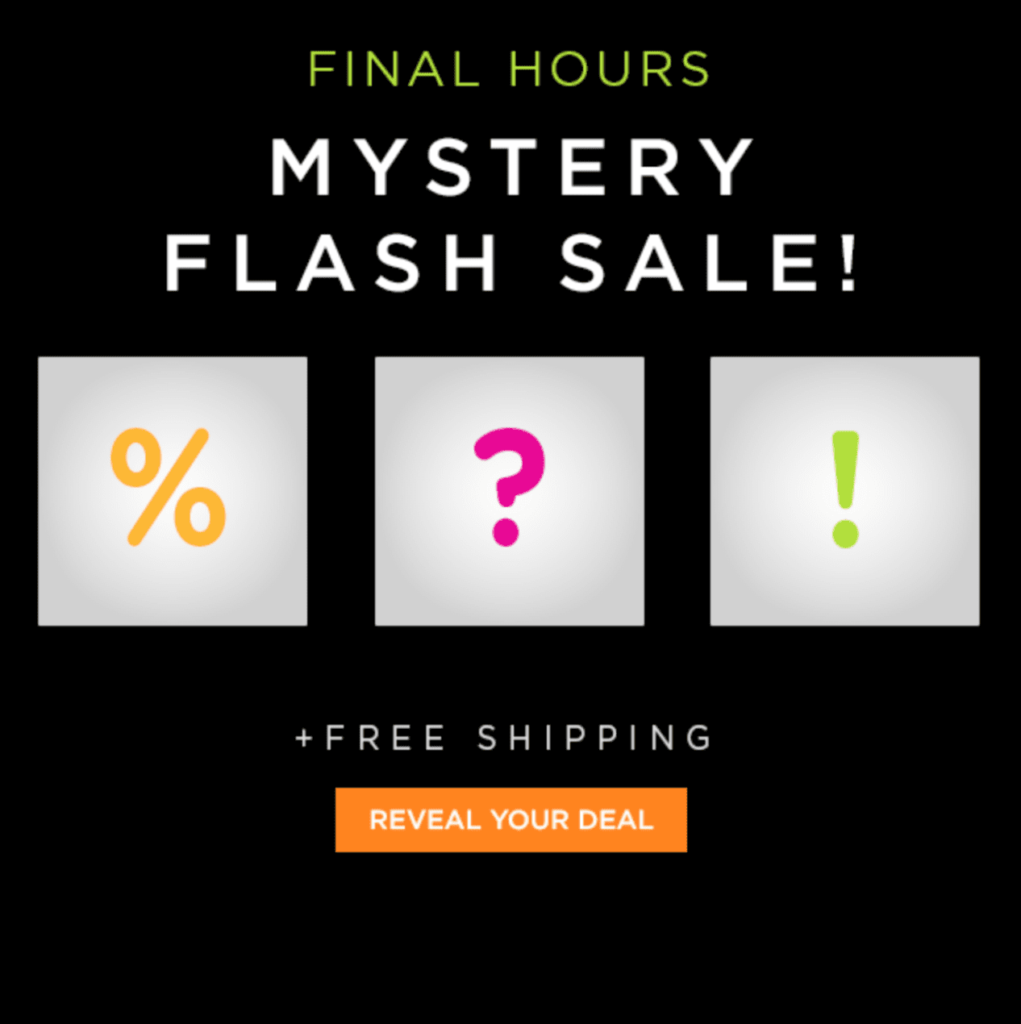
A different kind of sales urgency is created with the allure of exclusivity. Retailers like Fabletics do this by constantly offering discounts for their VIP members (which anyone can become just by giving an email address).
However, if you’re not in the business of separating your customers by category, you can create that same experience through a kind of “Select Members” or “Friends and Family” flash sale.
You do this by only advertising the sale to your existing contacts, and inviting them to do the advertising for you— just like Audible did with their big friends and family sale.
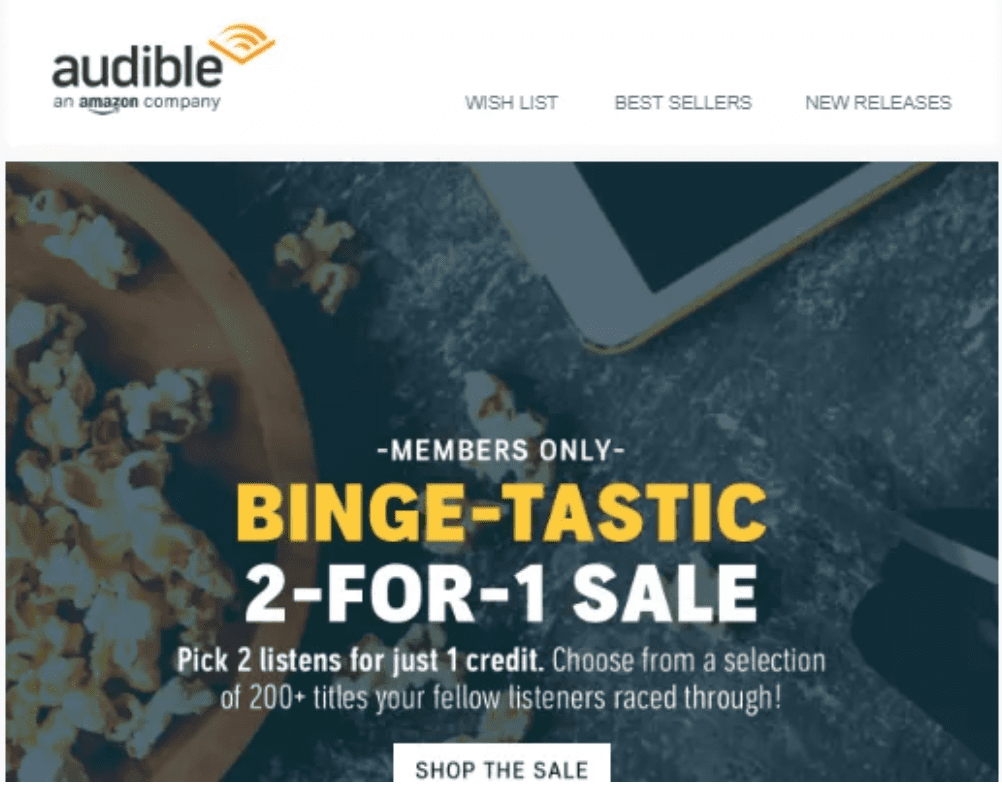
We hope the next time you see an ad for a limited-time offer, you won’t write it off as a gimmick. Instead, we hope to have shed some light on the power a truncated timeline can have on your sales.
If you decide to try out a yearly or weekly flash sale with your business let us know, we’d love to hear about it! And if your e-commerce store sends texts to advertise your sale, check out these 110 sample sales texts. We might even feature you on our site!
Meghan Tocci is a content strategist at SimpleTexting. When she’s not writing about SaaS, she’s trying to teach her puppy Lou how to code. So far, not so good.
More Posts from Meghan TocciThink texts are only useful for one-way promotions? Think again! Here’s how you can use SimpleTexting to receive inbound SMS and have two-way conversations.
ReadSMS Geofencing may sound intimidating, but it’s one of the most effective ways to reach your audience. Use this guide to understand how, when and why to leverage it.
ReadStart a text marketing campaign or have a 1-on-1 conversation today. It's risk free. Sign up for a free 14-day trial today to see SimpleTexting in action.
No credit card required